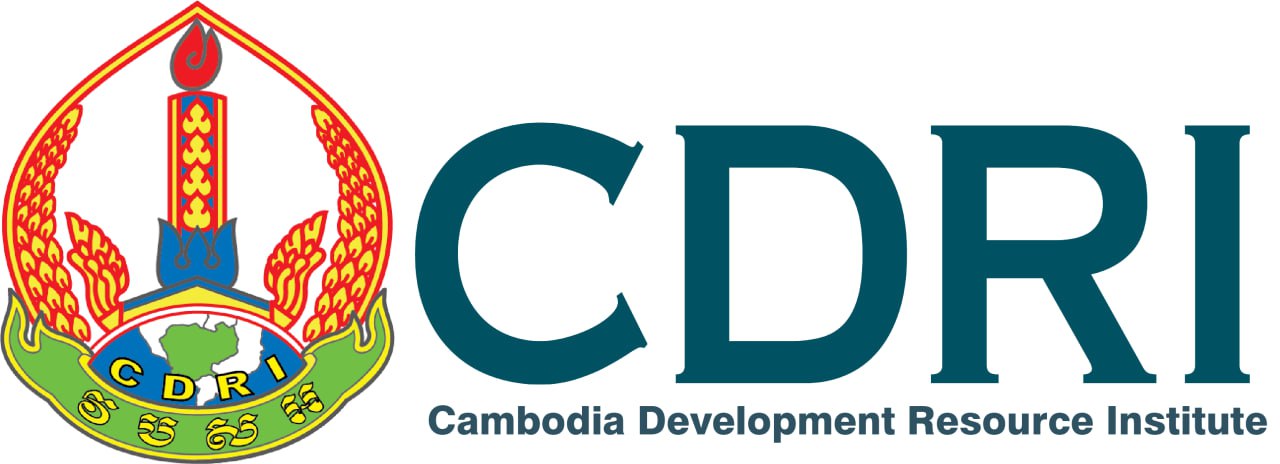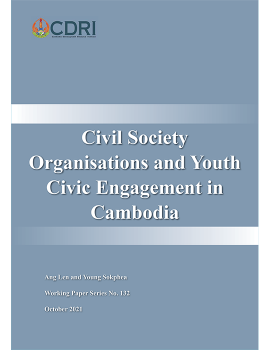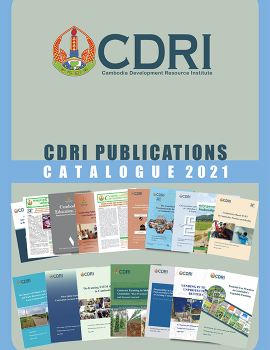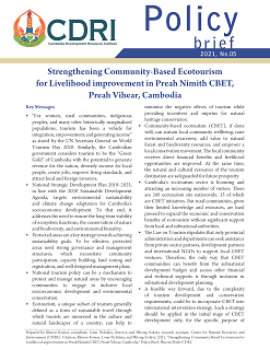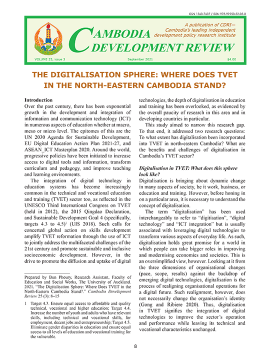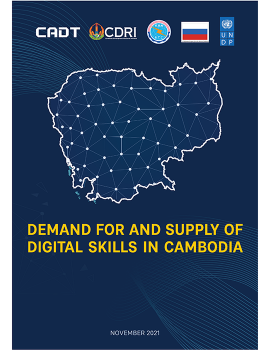
Demand for and Supply of Digital Skills in Cambodia
The study assesses current and future demand for and supply of digital and ICT skills and investigates the challenges firms of all sizes, universities, and TVET institutions face in preparing themselves and their students for digital technology adoption under the framework of the Fourth Industrial Revolution (4IR). A mixed-methods approach of quant...
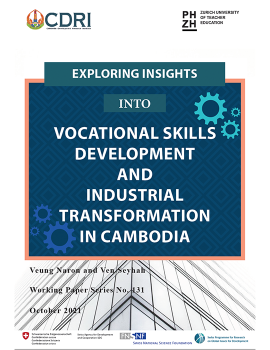
Exploring Insights into Vocational Skills Development and Industrial Transformation in Cambodia
Industrial development is central to Cambodia’s economic development as it plans to upgrade the country’s status to an upper-middle-income country by 2030 and to a high-income country by 2050. Equipping the workforce with the skills and competencies that match industrial needs requires a great deal of continuous efforts and resources. In this regar...
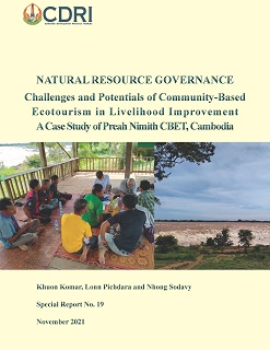
Challenges and Potentials of the Community Based Ecotourism in Livelihood Improvement: A Case Study in Preah Nimith CBET, Cambodia
Community-based ecotourism (CBET) has long been considered an effective natural resource governance policy for both forest conservation and livelihood improvement in developing countries around the world. Cambodia is no exception. The Cambodian government has been promoting and establishing CBET sites countrywide. Preah Nimith CBET, located in a re...
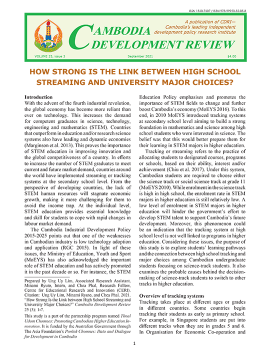
How Strong Is the Link between High School Streaming and University Major Choices?
The purposes of this study are to explore learning pathways when students transit from high school to higher education among Cambodian students and examine the probable causes behind their decision to switch academic majors. The study found that about half of surveyed students switched their academic majors. Virtually all the switchers are science-...
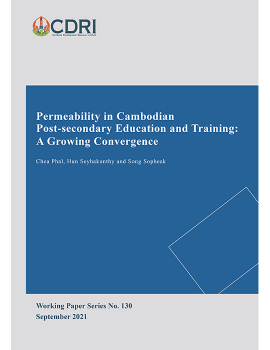
Permeability in Cambodian Post-secondary Education and Training: A Growing Convergence
The distinction between vocational training and academic education can be traced back to different institutional structures in medieval Europe. However, owing to an increasing need for higher-level skills to respond to market demand, countries have resolved to establish flexible pathways for students on both tracks or systems to move or transfer ac...
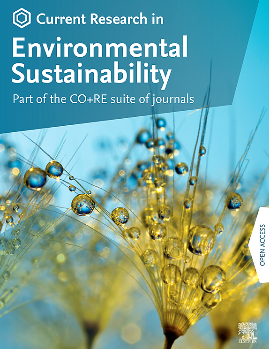
Do Climate Uncertainties Trigger Farmers’ Out-migration in the Lower Mekong Region?
Many rural communities in the Lower Mekong region are vulnerable to the climate uncertainty induced by climate change due to high rate of poverty, lack of agricultural technology, and heavy reliance on the environment for their livelihoods. Rural people are likely to migrate to urban areas in response to the climate impacts and thanks to the rises...
